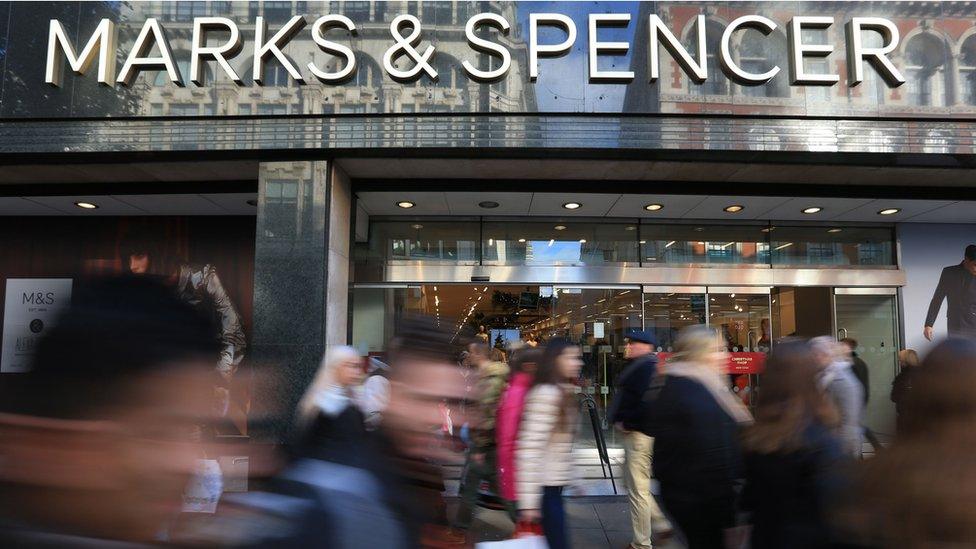M&S annual profits fall by 64% as revamp costs bite
- Published
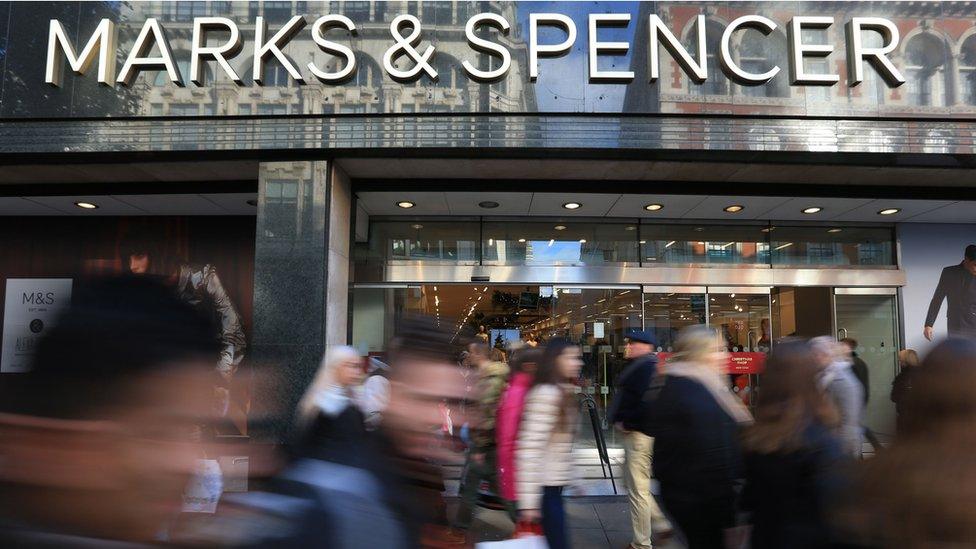
Profits at Marks and Spencer fell by almost two thirds to £176.4m last year following a costly business overhaul.
The retailer said that a decline in clothing sales and higher costs from opening new food stores were partly to blame for the 64% fall.
Sales were flat at £10.6bn in the year to the end of March 2017.
Chief executive Steve Rowe revealed that like-for-like sales in his first full year in charge fell by 1.9% in the UK.
The slide followed a 5.9% fall in the three months to April.
The fact that Easter fell later this year hit the company hard, although Mr Rowe added that the fall was also partly due to a push for more clothes being sold at full price.
'Pleased'
Clothing and home sales revenue still fell by 3.4%, although food performed better, falling just 2.1% in the fourth quarter.
Mr Rowe said the company remained "on track" with its turnaround plans announced last year, which include opening new food-only stores, selling clothing and homewares in fewer stores and cutting back on discounting.

Analysis: Emma Simpson, BBC business correspondent
The headline numbers look awful. Pre-tax profits nose-diving by nearly two thirds to £176m. A far cry from the heady days when profits went above the billion pounds mark.
The pain is largely self-inflicted with more than £400m of restructuring costs. There are glimmers of hope though. Marks is now selling noticeably more stuff at full price as it weans itself off promotions.
Steve Rowe revealed this morning that the business had just seen 91 days of selling at full price, the largest run of full price days in 10 years. The big question is, after so many false dawns will this new turnaround plan do the trick?
The business has undergone some huge, and many would agree necessary, structural changes in the last 12 months.
But this is no quick fix. For instance, it's going to take time for these deals and discounts to work their way out of the sales numbers before we really get a true sense of whether the new strategy is working.

"We are almost exactly where we thought we would be and we are pleased with what we delivered this year," Mr Rowe said.
The firm was hit by a number of sizeable one-off costs, including £156m to make changes to its pension scheme, £132m on international store closures, and another £49m on changes to its UK store estate and "onerous lease charges" related to that estate.
A further £44m was absorbed by M&S Bank being hit by charges incurred in relation to insurance mis-selling.
Excluding these one-off costs, profits were down 10% to £613.8m.
'Uphill battle'
Profits came in higher than most analysts had expected, but they said there was still work to be done.
Laith Khalaf, senior analyst at Hargreaves Lansdown: "On top of its own singular problems, M&S is facing some big economic headwinds, in particular the fall in sterling, which is pushing up the price of food and clothes against a backdrop of squeezed consumer incomes.
"The high street is also in decline as more of us turn to our mobiles and tablets to do our shopping, which leaves M&S fighting an even steeper uphill battle."
Shares rose 2.6% in morning trading to 397.4p, hitting a 12-month high.
Analysts at Peel Hunt forecast a rise in non-food sales this year as M&S implemented changes that will "drive shoppers to the stores and, more importantly, to the tills when they get there".
Clothing
Its clothing division has been a perennial headache for M&S, with years of falling sales. Despite an unexpected rise in sales at Christmas, it was business as usual in the three months to April.
However, the firm stressed that more items were being sold at full price, increasing its profit margin on each item.
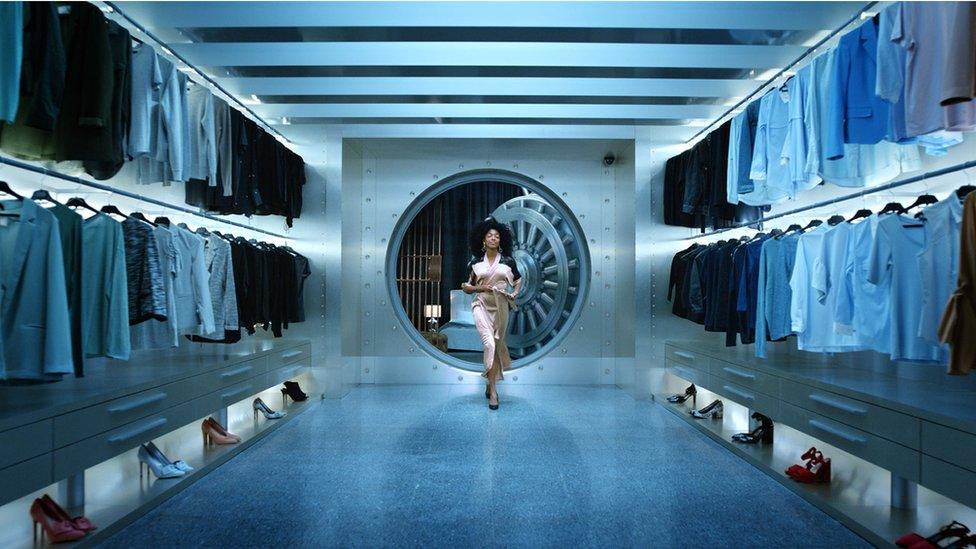
Promotional days have been cut, both in store and online, including the scrapping of eight cyber events and ignoring the heavily discounted Black Friday sales day.
Jill McDonald will join later this year as head of non-food and Mr Rowe said he had no concerns about the Halfords boss's lack of fashion experience. "There are other aspects to the job. This is about a managerial job," he said.
The company also said it had been listening to customers and would improve the product range in its smaller stores, focusing on more children's clothing and homewares.
Food
The food division performed better, with UK like-for-like sales down 0.8% for the year, including a 2.1% fall in the final quarter.
The decline was again mainly due to Easter falling later, and was not included in Wednesday's results.
The company is pinning its hopes on expanding its food operation, including 68 new food-only stores which opened in the last year, with 250 new sites by 2020.
M&S said the new Simply Food stores had outperformed its expectations, although the cost of new sites hit profits.
The new stores helped total food sales in the UK to rise 4.2% and Mr Rowe said he would now launch an online shopping trial in the autumn. Online sales rose 4.9% for the year.
- Published24 May 2017
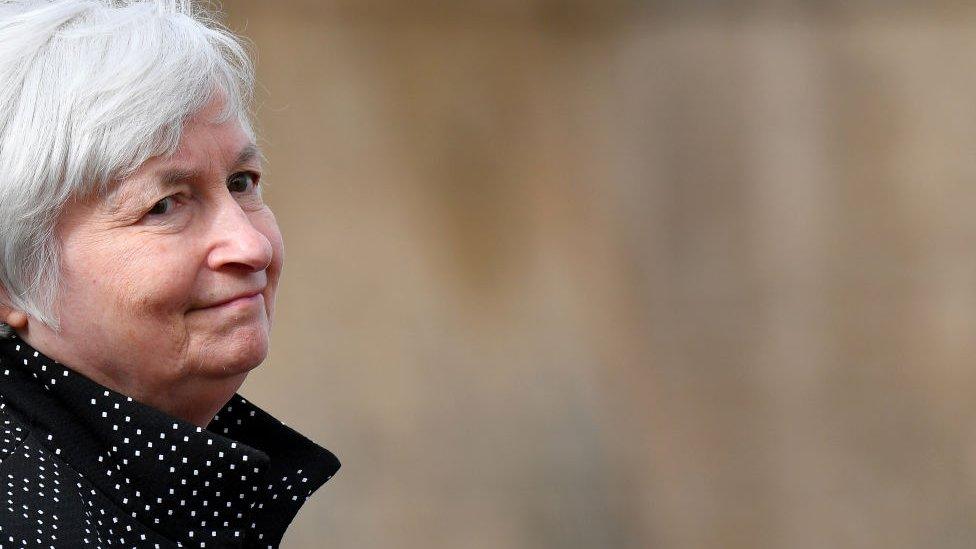
- Published3 May 2017
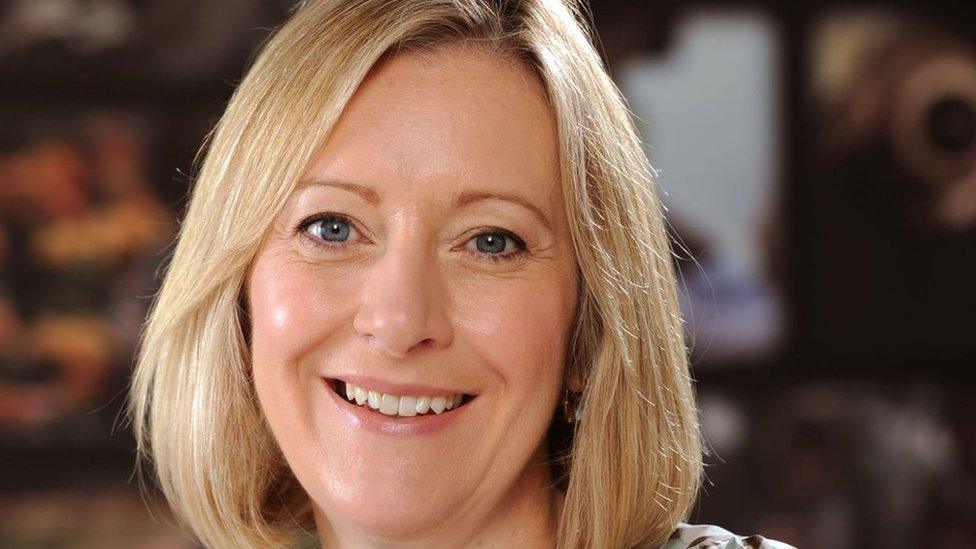
- Published20 April 2017
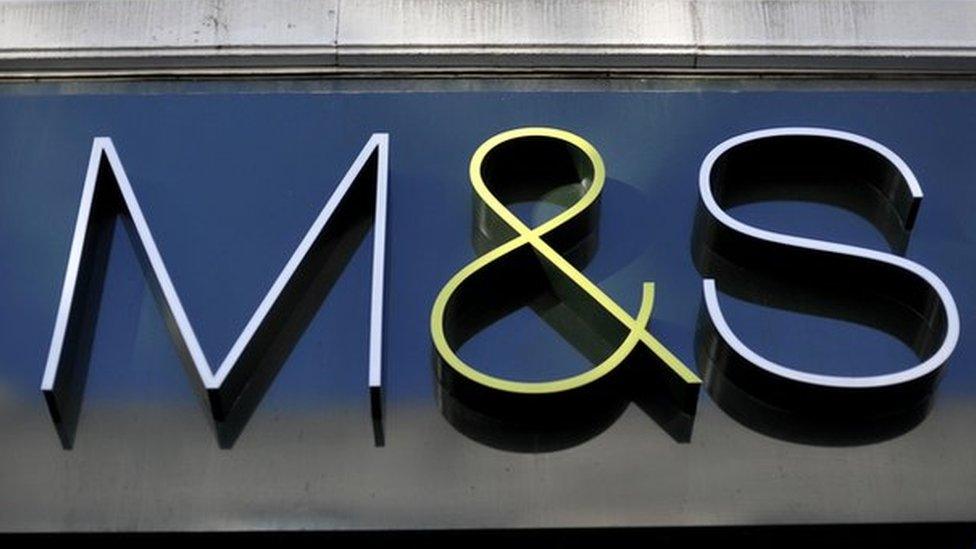
- Published12 January 2017
